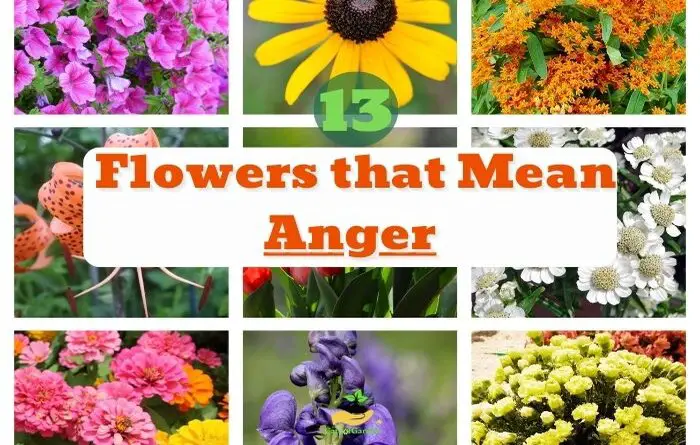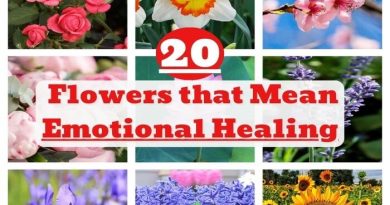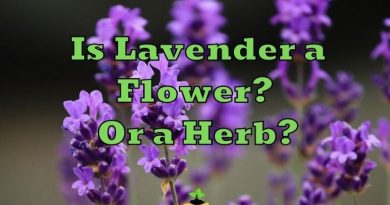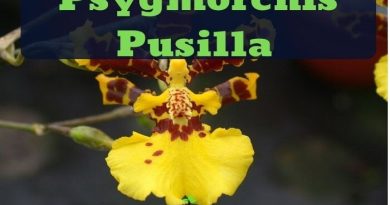13 Flowers that Mean Anger: The Secret Language Of Flowers
You probably think of love, devotion, and passion the moment you see a red rose, since that is what these flowers genuinely stand for. However, not all flowers have positive associations, and some are even associated with negative emotions like anger and resentment.
Maybe you could believe that a recent funeral was conducted someplace when you smell the lovely scent of fresh, white lilies all around you.
You might be shocked to learn that there are some types of flowers that you should never present to your loved ones, just as there are flowers like these with such profound meanings that you can send to most people on various occasions. These have extremely startling meanings that can seriously damage the receiver’s mood and cloud their entire day.
We’ll look at some of the most popular flowers for anger in this blog post, as well as their meanings.
Table with Flowers that Mean Anger and Hatred
| Flower Name Representing Anger | Negative Meaning | Seasons When They Bloom |
|---|---|---|
| Petunia | Resentment or Anger | Summer |
| Orange Lily | Hatred or Disdain | Summer |
| Butterfly Weed | Letting go of someone or something | Summer |
| Aconite | Misanthropy or Hatred towards humanity | Summer |
| Red Tulips | Declaration of love with an element of aggression | Spring |
| Tiger Lilies | Aggression or Anger | Summer |
| Black-eyed Susans | Justice | Summer, Fall |
| Sunflowers | False riches or haughtiness | Summer, Fall |
| Jasmine | Sensuality, Pessimism, or Egotism | Summer, Fall |
| Yarrows | Cure for heartbreak or grief | Summer, Fall |
| Black Roses | Death, Farewell, or Revenge | Summer |
| Zinnia | Thoughts of absent friends | Summer, Fall |
| Yellow Carnation | Rejection or Disappointment | Spring |
1.Petunia
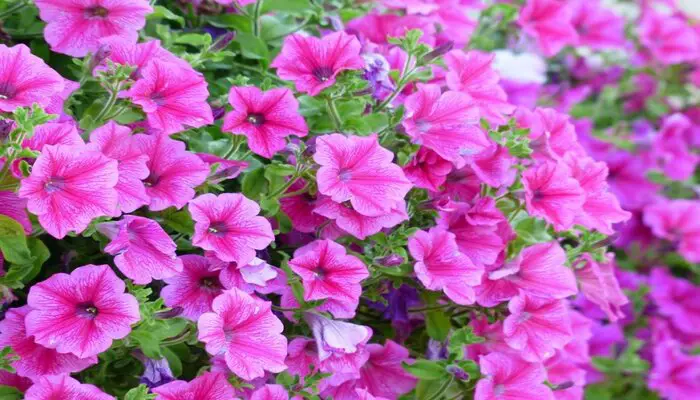
Petunias originated in South America, where Spanish explorers reportedly discovered them in the 16th century. At that time, the plants were ignored as they were considered ugly, which the locals called “petun”, which means “useless tobacco plant”.
In reference to the plant’s resemblance to the tobacco plant, the term petunia roughly translates to tobacco that doesn’t create a nice smoke. You can send someone a bouquet of these flowers if you have been furious with them on purpose, but the anger has turned to bitterness.
The Petunia is known for being able to express intense displeasure. Yet, this interpretation is connected to old myths and tales. Petunias are a representation of intense bitterness, rage, and unhappiness despite their beautiful attractiveness.
Petunia is, in fact, associated with anger in floral language. It can be offered to show one’s anger towards the person to whom it is offered, or it can be offered to learn more about the cause for that person’s anger.
If you receive a petunia, consider whether the individual who gave it to you is angry. If you are the one who is angry, this offeror is most likely a request to clarify yourself to the person who is offering it to you.
When given as gifts, petunias have (in the language of flowers) two meanings. However, the two meanings are not the same since one symbolizes being comfortable with someone and the other symbolize anger.
Petunias have a pretty name and look pretty harmless too, but beneath that innocent appearance beats a heart of anger. That’s right, petunias are considered the flowers of anger and resentment.
Anger and resentment are common themes for this flower when offered to someone you recently had a fight with.
This will only let them know that you are trying to get over your sentiments of pain and disappointment.
2.Lily (Orange)
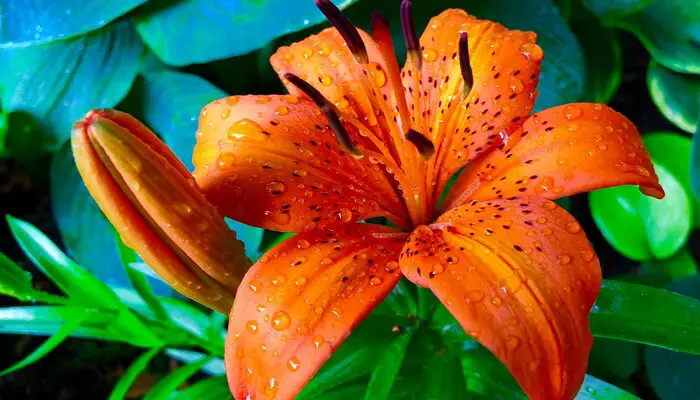
There has always been debate about the symbolism and importance of orange lilies, as they appear to have both positive and negative meanings.
Although lilies are generally such lovely and pleasant flowers, the majority of people think that these flowers stand for sentiments of anger, arrogance, and hatred.
Lilies are among the most well-liked flowers, and brides have historically carried them or received bouquets of them as presents. Orange lilies, on the other hand, have negative associations and might stand for pride, enmity, and humiliation.
Orange flowers can represent wrath, arrogance, scorn, and pride. Lilies are typically the flowers of grief since they may also stand for rage.
3.Butterfly Weed
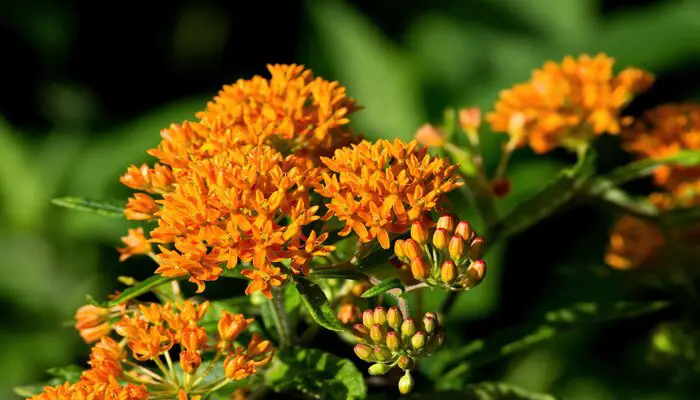
A milkweed species known as butterfly weed with brilliant orange flower clusters. Since butterflies are drawn to the plant, it is known as Butterfly Weed. Although it appears beautiful, the flowers really symbolize isolation and rejection from others.
The plant known as butterfly weed, is believed to have spiritual and symbolic abilities, but they may also symbolize anger and hatred. This flower is thought to signify the message “Leave me” when given to someone. In other words, this flower represents the concept that you must leave me in any way, whether you like it or not.
4.Aconite
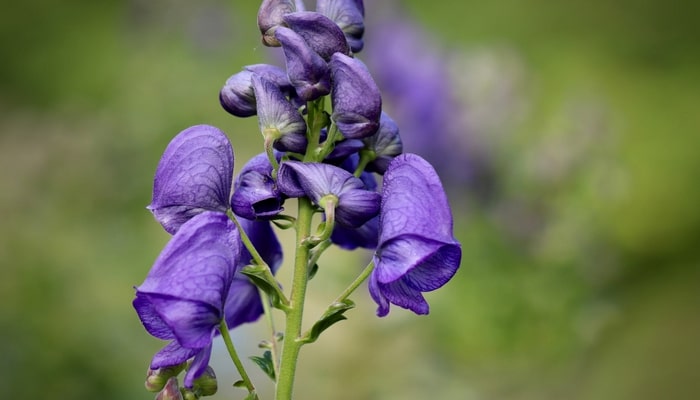
The Aconite flower, also known as wolfsbane or monkshood, is associated with various negative meanings, including anger and hatred. This association may stem from the plant’s poisonous properties, which can cause serious harm or death if ingested.
Although being deadly, aconitum species have long been employed in Western medicine. Aconite, sometimes referred to as monkshood since each blossom resembles a hooded monk, has stunning purple flowers that develop on stalks.
Although it has some good connotations, it is also a representation of hatred. This is a representation of worry and aggression along with groaning, impatience, rage, and tossing objects. The Devil’s Helmet is a less complimentary moniker for it.
In addition to its toxicity, Aconite has been historically associated with witchcraft and was used in ancient times as a poison for arrows and spears. These dark associations with death and harm may have contributed to the flower’s association with anger and other negative emotions.
5.Red Tulips
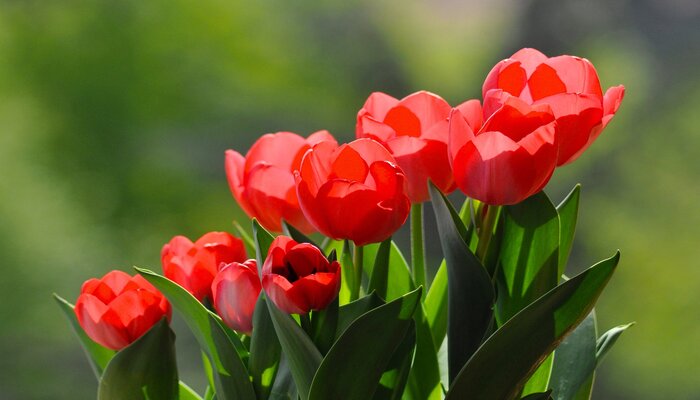
Tulips come in a variety of hues, each of which has a special meaning. White tulips stand for forgiveness, while red tulips symbolize love. A red tulip’s positive connotation is all about love, passion, romance, power, and joy.
Tulips are a global emblem of romance and love. The red tulips negative tone, on the other hand, denotes anger, danger, and fury. Thus, anytime the red tulip crosses our path, it is communicating with our feelings.
Red, the color of blood and love, of which the tulip expresses the utmost essence. According to other beliefs, this flower symbolizes love in its negative meaning, a love that is distant, distant, cold and suffering.
First of all, the bouquet with tulips can go to the left and be pulled into the negative. Because tulip meaning is not always positive, as this proves.
With a bouquet of tulips you can tell the other person that their love is not enough. One can also send a message that the other person is not fit for love .
This symbolism also refers to Persian legend, because the person he was looking for did not find his way to the girl, and therefore he was not capable of love.
6.Tiger Lilies
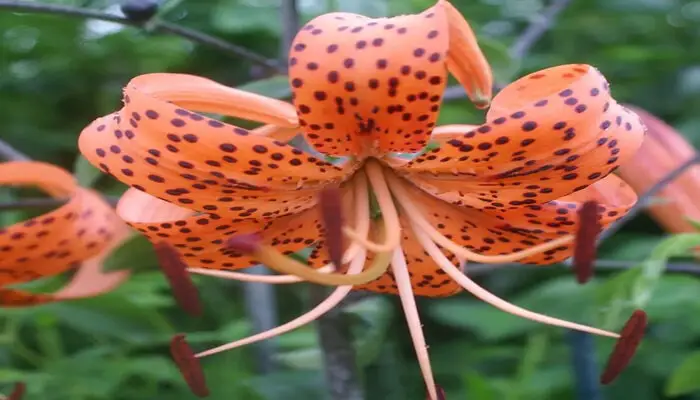
The Tiger Lily is a lovely flower that symbolizes rage. This bloom is a native of Asia and is also South Korea’s flag flower. The tiger lily features black dots and an orange or red tint. This flower may grow up to six feet tall and blooms in the summer.
The Tiger Lily’s name comes from the way it resembles a tiger’s fur. Tiger lilies are a sign that someone is really irate with you if they give you a bouquet of them. They might be mentally yelling or swearing at you. This flower also represents fury and danger.
7.Blackeyed Susans

The flower’s name probably comes from an Old English poem by John Gay about a woman of the same name. This probably happened during colonial times when the settlers planted wildflowers on the plains.
Black-eyed Susans are commonly associated with justice and fairness, but they can also be interpreted as a symbol of anger, particularly when given in a negative context. The dark center of the flower can be seen as representative of an angry or resentful eye, while the bright yellow petals suggest a fiery or intense emotion.
Beautiful Black-eyed Susan flowers are frequently used in bouquets and other floral arrangements. But this flower truly represents anger in a sneaky way. Native to North America, the black-eyed susan takes its name from the flower’s dark brown or black center.
The remaining petals are often gold or golden in hue. Although being a lovely flower, the black-eyed susan is also connected to anger. This is because to the Black-eyed Susan’s sour-face-like appearance. The flower’s center resembles a mouth that is frowning if you look at it closely.
8.Sunflowers
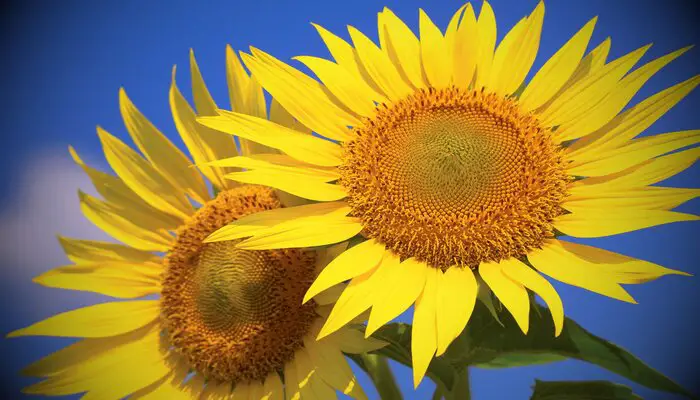
Sunflowers are frequently seen as a spiritual flower. This is due to their resemblance to the sun and the fact that they are always looking for light.
Sunflowers are therefore highly well-liked by people of many religions since they represent fidelity and following one’s spiritual leader or god. But did you know that anger may also be symbolized by sunflowers? Indeed, these lovely blossoms are frequently viewed as a sign of anger and hatred.
Sunflowers may represent anger for a number of different reasons. For starters, its vivid yellow color is frequently linked to pleasure and happiness. Yet at the same time, the same color can also be connected to irritation and frustration.
Sunflowers are frequently linked to the sun, which is another factor that may contribute to their association with anger. Yet as we all know; the sun can be a very hot and flaming star!
As a result, sending someone a bouquet of sunflowers is a thoughtful way to vent your displeasure. Just make sure the receiver is aware of what to expect!
9.Jasmine
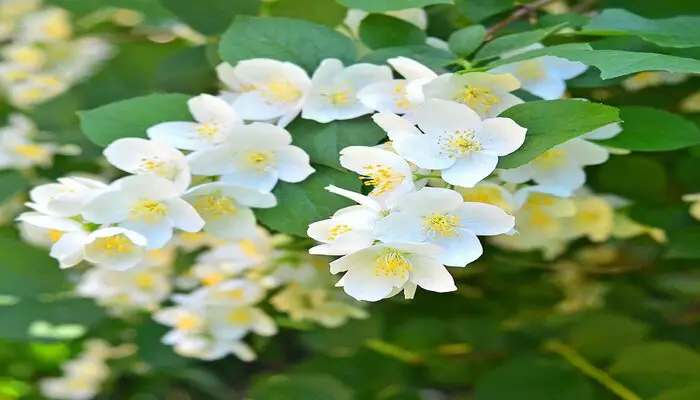
Do you want to know what the jasmine flower means? Jasmine’s meaning is ambiguous and open to interpretation. Positiveness, sensuality, and warmth are just a few of the many qualities that jasmines stands for. It has also been linked to rage, despite the fact that it often stands for happy sentiments.
There is no known negative connotation associated with the jasmine blossom, which is believed to be a flower of optimism. The flower is regarded as a lucky charm in many cultures throughout the world. In contrast, a dead jasmine blossom in a dream signifies the demise of romanticism in a union.
10.Yarrows
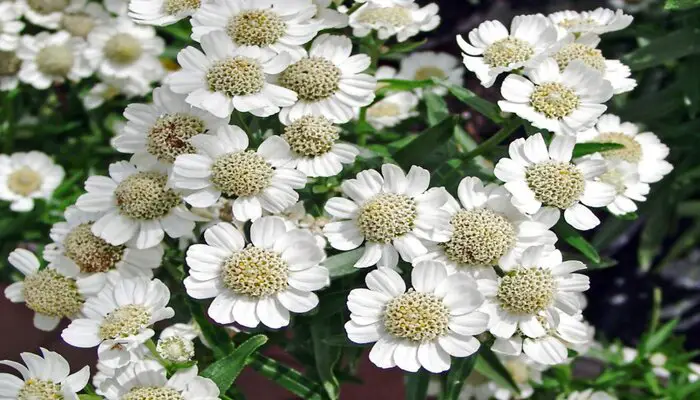
Yarrow is a flower that can be associated with anger, as well as war, conflict, and protection. In the language of flowers, Yarrow represents both healing and aggression, making it a complex and versatile symbol. In some cultures, Yarrow has been used in rituals and spells to ward off negative energy or to protect against enemies.
Yarrow, sometimes referred to as soldier’s wound wort, military herb, and knight’s milfoil, is a representation of bravery, particularly in times of conflict. Yarrows are regarded as a sign of magic since they are said to possess mysterious abilities.
In addition, they were connected with rage owing to their prickle-like blooms and pointed leaves. They can also be employed as an organic deterrent to bad energy. Consider having a yarrow plant close by if you’re feeling aggressive or defensive.
11.Black Roses
The rose is the romantic flower par excellence. There are different colors, shades and meanings. The one that certainly arouses curiosity and hides different meanings among its petals is undoubtedly the black rose.
According to the language of flowers, if we receive a black rose as a gift, from a sentimental point of view, it is not a good sign. The meaning of the black rose is a farewell.
The giver intends to definitively break the relationship with the recipient of the flower, with feelings of hatred and resentment for a love that has now come to an end.
Given how prized roses are as a whole, it could come as a great shock to learn that the black rose is not one of them. These flowers symbolize grief and death, which are typically linked to the color black.
Black roes do, however, have certain horrifying, well-kept implications that connect to anger, hatred, as well as the end of a relationship or profession.
If you don’t know if the recipient enjoys this flower, it’s advisable to stay away from it. The black rose, is after all seen as especially lovely by some.
12.Zinnia
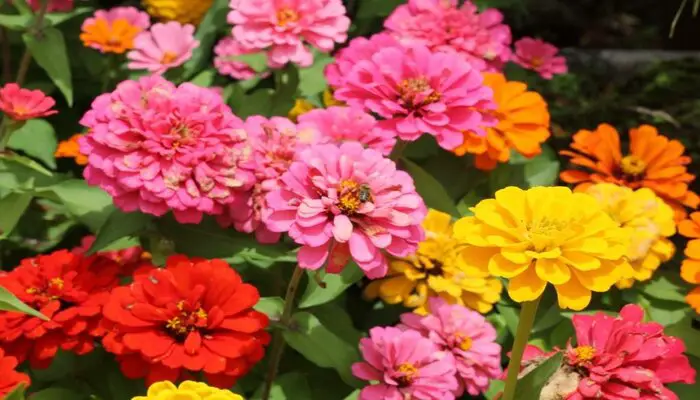
The zinnia is native to the Americas and Mexico, and is most commonly grown as a perennial in warm regions, in cooler areas, it is grown as an annual. The name was bequeathed to the plant by the German botanist Johann Gottfriend Zinn, who named the plant when he arrived in Europe in the mid-18th century.
Zinnia is a flower that symbolizes fickleness. Often yellow or purple in color, it signifies complete love. “You don’t love me anymore”, it designates a love that has come to an end and is complete. Its beautiful and pretty colored flowers refer to a meaning that is quite sad enough.
Red zinnias generally symbolize romance, love, and passion. They can also symbolize aggression and anger, but are usually used for more positive occasions.
The zinnia flower is often associated with anger because of its bright and bold colors, particularly the red and orange varieties. These colors can symbolize strong and intense emotions, including anger and resentment.
Additionally, the zinnia flower is often used in funeral arrangements or to symbolize the end of a relationship, which can also contribute to its association with negative emotions.
13.Yellow carnation
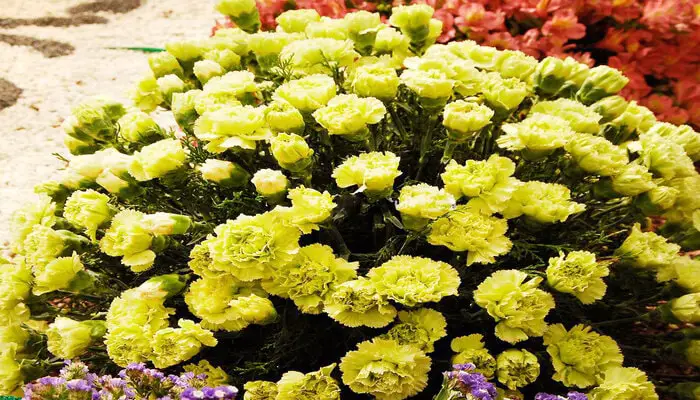
Carnations are a popular flower that come in a wide range of colors.
While red carnations once had a political connotation because they were historically a symbol of the labor movement and socialism, today they (like red roses and tulips) represent love and solidarity.
Yellow carnations mean the exact opposite having negative connotations in some cultures, namely resentment, hatred and contempt. In fact, it’s the perfect gift for your favorite enemy.
Giving someone a yellow carnation means despising them or wanting to leave them.
In the Victorian era, negative values were assigned to certain shades of carnations. Yellow ones were given as a refusal to some request or offer, and striped ones to express their disappointment and anger.
If you find yellow carnations at the florist, don’t be fooled by their beauty. They represent rejection and disappointment, so they are far from ideal for a happy occasion or a loving gesture.
Conclusion
In conclusion, flowers have a rich and complex history of symbolism and meaning that varies greatly depending on culture, context, and personal interpretation. While not all flowers are associated with positive emotions, the flowers that mean anger offer a unique insight into the darker side of floral language.
Frequently Asked Questions
Petunias, orange lilies, butterfly weed, aconite, red tulips, tiger lilies, black-eyed Susans, sunflowers, jasmine, yarrows, black roses, zinnias, and yellow carnations are some of the flowers that symbolize anger or hate.
Yes, flowers can help you express your anger in a healthy way by using them as a form of communication or creative expression.
It depends on the context and the relationship between the giver and receiver, but generally, it’s best to avoid giving flowers that represent negative emotions as a gift.
There is no specific color or type of flower that represents anger; any flower can symbolize this emotion depending on the cultural or personal context.

